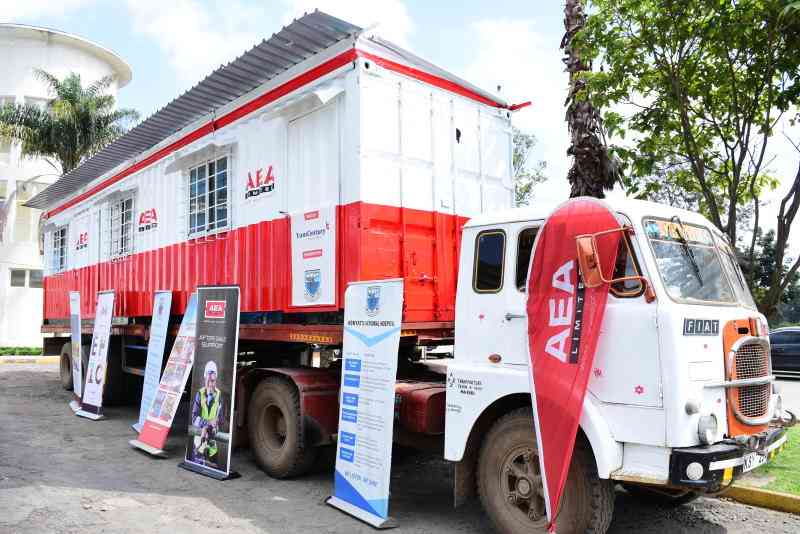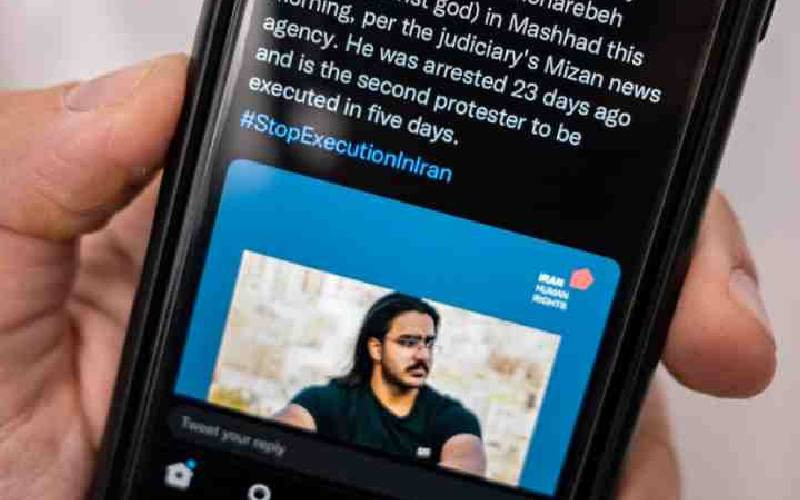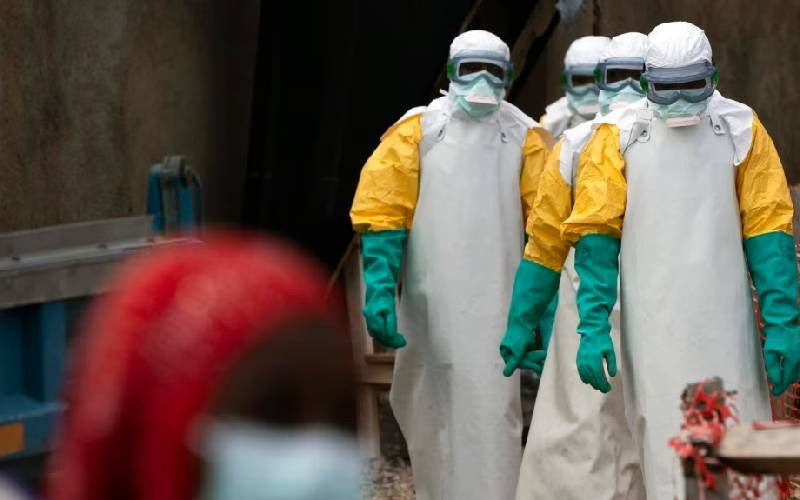 |
|
An empty street is seen at the start of a three-day national lockdown in Freetown September 19, 2014.Credit: Reuters/Umaru Fofana
|
Freetown; Sierra Leone: Streets in the capital of Sierra Leone were deserted on Friday as the West African state began a contested, three-day lockdown in a bid to halt the worst Ebola outbreak on record.
President Ernest Bai Koroma urged people to heed the emergency measures, and only vehicles driven by police and health workers took to the normally bustling roads of Freetown.
Radio stations played Ebola awareness jingles on repeat and encouraged residents to stay indoors.
Nearly 30,000 health workers, volunteers and teachers aim to visit every household in the country of six million people by Sunday to educate them about the disease and isolate the sick.
Ebola has infected some 5,357 people in West Africa this year, mainly in Sierra Leone, Guinea and Liberia, killing 2,630 of them, in the most deadly epidemic of the virus since it was discovered in 1976 in the forests of central Africa.
Western nations, led by the United States, have pledged in recent days to ramp up their aid effort and the United Nations said on Thursday it would deploy a special mission, calling the outbreak a "threat to international peace and security".
In Sierra Leone, at least 562 people have died so far from the incurable disease.
"Today, the life of everyone is at stake, but we will get over this difficulty if all do what we have been asked to do," President Koroma said in a television address late on Thursday.
"These are extraordinary times and extraordinary times require extraordinary measures."
Some have questioned, however, whether the campaign will be effective. Sierra Leone newspaper Awareness Times in an editorial called the preparations for the lockdown "chaotic" and recommended its postponement.
In Freetown, teams got off to a slow start, waiting several hours to receive kits containing soap, stickers and flyers.
"This morning many families are calling on the radio crying because of lack of food in their homes," said Ahmed Nanoh, executive secretary of Sierra Leone's chamber of agriculture. "Food prices have gone up 30 percent. Many homes that cannot afford (food) are starving."
However, an official for the United Nations children's agency UNICEF, Roeland Monasch, said the "Ose to Ose" campaign, which means "house to house" in local Krio, would be helpful.
"If people don't have access to the right information, we need to bring life-saving messages to them, where they live, at their doorsteps," he said.
Stay informed. Subscribe to our newsletter
Investors are worried about the consequences of the lockdown on Sierra Leone's iron ore production. In a bid to reassure them, African Minerals Ltd. said it expected no material impact on its iron ore operations.
GUINEA PURSUES KILLERS
Healthcare workers seeking to contain the Ebola outbreak have often been met with deep mistrust by local communities, hampering their efforts to stop its spread.
In a tragic illustration of latent fears, a team of eight people educating locals on Ebola risks in a remote part of southeastern Guinea were killed and their bodies dumped in a village latrine.
Guinea said it had launched an investigation into the attack and pledged to track down and punish the killers.
"The government condemns in the strongest possible terms the murder of Guinean citizens, including officials carrying out their duties," government spokesman Damantang Albert Camara said late on Thursday, adding that security forces were at the scene.
NGOs warned in a joint statement that the Ebola crisis could set back by a decade economic progress in Liberia, Guinea and Sierra Leone, and called on more governments to follow U.S. steps to expand efforts to stop the disease's spread.
U.S. President Barack Obama said earlier this week it would deploy 3,000 troops in the region. There are currently around 20 military personnel on the ground in Liberia conducting planning and assessment for the mission.
A U.S. military official in the region said the new personnel will not be directly in contact with Ebola patients.
In a rare piece of good news, Senegal's health minister said on Friday there was no further risk of Ebola spreading in his country, following the end of a quarantine period for those who came into contact with an infected man from Guinea.
"The risk of the Ebola virus spreading from the imported case is non-existent for our country," Awa Marie Coll Seck told a news conference. State television said the 21-year-old Guinean student was being repatriated on a military aircraft.
Ebola is endemic in forest mammals in parts of Central Africa but the deadly Zaire strain has never previously appeared in West Africa. Scientists say that a fruit bat butchered as bushmeat in Guinea last December probably started the epidemic.
A parallel outbreak has so far killed 40 people out of 71 cases in the Democratic Republic of Congo.
 The Standard Group Plc is a
multi-media organization with investments in media platforms spanning newspaper
print operations, television, radio broadcasting, digital and online services. The
Standard Group is recognized as a leading multi-media house in Kenya with a key
influence in matters of national and international interest.
The Standard Group Plc is a
multi-media organization with investments in media platforms spanning newspaper
print operations, television, radio broadcasting, digital and online services. The
Standard Group is recognized as a leading multi-media house in Kenya with a key
influence in matters of national and international interest.
 The Standard Group Plc is a
multi-media organization with investments in media platforms spanning newspaper
print operations, television, radio broadcasting, digital and online services. The
Standard Group is recognized as a leading multi-media house in Kenya with a key
influence in matters of national and international interest.
The Standard Group Plc is a
multi-media organization with investments in media platforms spanning newspaper
print operations, television, radio broadcasting, digital and online services. The
Standard Group is recognized as a leading multi-media house in Kenya with a key
influence in matters of national and international interest.









